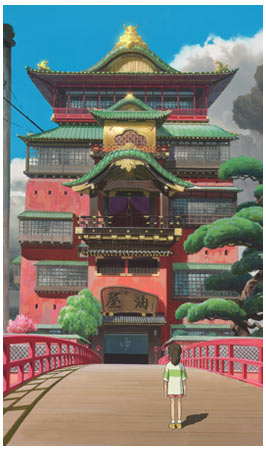I’ve just returned from a four-day trip to Taiwan with my family, our first visit to the mountainous nation that’s approximately the size of Japan’s southernmost island of Kyushu. It was a blast, and we had lots of fun as we surfed the chaos you can only experience being in a Chinese-speaking country. We took a tour of the major sightseeing spots in Taipei, which naturally included visiting the national monument to Chiang Kai-Shek, whose smiling statue stares across the sea at the lost Chinese mainland. (The name of the monument changes regularly depending on which political party is in power.) We made a point of visiting Jiufen, a pleasant mountain village an hour or so away from the capital which provided much of the setting for Hayao Miyazaki’s film Spirited Away.
It was fun being in a country I had no previous cultural connection to — I’ve lived in Japan too long to be surprised by the little wrinkles other foreigners encounter when visiting, and it was definitely good for me to leave my “comfort zone” for a while. In Taiwan it was impossible to make myself understood to anyone unless they happened to speak Japanese (quite common with older people, and anyone in the tourism industry) or more rarely, English. We had a surprising amount of trouble with restaurants: when we tried to order rice in one place they kept bringing us little bowls, until we realized we could communicate by writing kanji on a chopstick wrapper, since Chinese characters are more or less universal. Things got much easier after that.
Taiwan is unique as the Asian country with the most positive relationship with Japan, and there’s very little negative feeling left over from Japan’s Colonial Era. This comes from the general impression that Japan did good things for the island during its 50 year rule (from 1895 to 1945), introducing modern industry and compulsory education for all children, eradicating diseases like malaria and curbing archaic customs like foot-binding of girl children and the use of opium. One taxi driver I talked to had nothing but kind words for Japan, going out of his way especially to praise Yoichi Hatta, a civil engineer from Japan who built many great engineering works in Taiwan, including the largest dam and an extensive irrigation system, which enabled the island to avoid the starvation other countries experienced in the aftermath of World War II. When an American submarine sank the ship Mr. Hatta was on in 1942, his Japanese wife sent her eight children back to the home islands then climbed to the top of the dam her husband had built and jumped off, leaving a note that read, “I am following my beloved.” It’s quite a romantic story of wartime love, and a famous story in Taiwan. There is a temple and a memorial park dedicated to Hatta-san and his wife today.

We visited the Spirited Away village, Jiufen.















